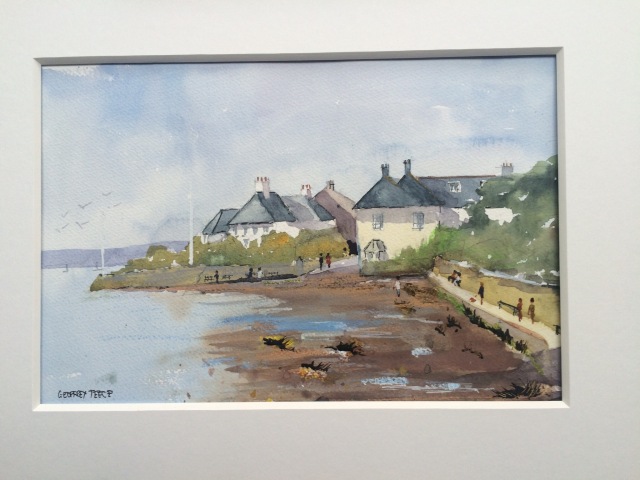You don’t have to spend much time in Topsham before you start to get the impression that our illustrious town has a rich history. From the beautiful architecture to the abundance of Churches and pubs (for a relatively small town) to the stunning riverside setting, it is of no surprise that Topsham has been the site of many comings and goings over the year. Here at The Passage House Inn we are proud of our characterful, ancient building. A pub, originally named The Ferry Inn, opened on the current site in 1721 and was renamed after 101 years in 1822. In a previous post we looked briefly at the ferry men who left their mark on the pub, namely TN Parker and Charles Hall. But what of the wider community around the pub? And what was happening before the 1700’s in Topsham?
A bit of research shows that Topsham has been a hub of activity for 10,000 years with evidence of Mesolithic hunting and the finding of Neolithic tools. In 1999 Archaeologists also discovered evidence of a 1st Century Roman Fort in Butts Park. According to the enthusiast at Exeter Memories, it is thought that ‘the name derives from Topp who was an Anglo Saxon landowner, while ham is a small village or settlement. There have been many variations of the name including Apsham, Apsam, Toppeshore, Toppeshant and Toppesham.’ Although it’s name may insinuate that it is a village, Topsham has evolved over the years and in 1300, was granted it’s very own town charter, giving it a degree of independence from nearby Exeter and allowing it to claim the title of ‘town’.
A little drama occurred a few hundred years later when Topsham was an important stronghold for Royalist forces during the English Civil War. A Parliamentary fleet attempted to land at Topsham in 1642 but was attacked by the Royalist defenders resulting in the capture of 2 ships and the burning of a third. However, despite their ferocious attempts to defend the town, in 1645, General Fairfax drove the Royalist forces out prior to the surrender of Exeter in April 1646.
By the 17th Century, Topsham was one of the busiest ports in England and when shipbuilding was revived from 1790, there were at least seven shipbuilding yards in the town. In addition to many civilian vessels, 27 warships were built in Topsham with the frigate Fawn, being the largest weighing in at an impressive 500 tons. One of the most prominent ship builders was master mariner, John Holman, who founded the West of England Marine Insurance Company, now one of the countries largest marine insurance companies.
Although shipbuilding may not be the centre of Topsham’s economy anymore, the river still plays an important role in defining the town. Locals and tourists alike enjoy walking down the Exe Estuary Trail to admire the view, taking to the water on boats and canoes and generally spending time in the vicinity of this Area of Outstanding Natural Beauty. Here at The Passage House Inn we feel blessed to be situated so wonderfully close to the river and nestled in the heart of Topsham. As the summer unfolds before us, we look forward to welcoming many of you through our doors to enjoy a delicious meal with a drink or two by the River Exe in beautiful, historical Topsham.

